Thinking About Weight Loss Supplements? Read This Before You Buy
Weight loss supplements sit on store shelves like shiny promises. They whisper ideas of easy progress and smaller jeans. Before spending money, it helps to slow down and ask better questions. A calm look now can save regret later. Burn Slim can be a great option if you aim to find the best weight loss supplements for your journey. Supplements are not magic pills. They are tools, and tools need context. Some help, some disappoint, and some simply drain wallets. Knowing how they fit into real life makes all the difference. Let’s break it down in plain language.
Why Supplements Sound So Tempting
Marketing speaks directly to frustration. Ads show smiling faces and dramatic timelines. That message lands hard when diets feel boring, and workouts feel long. Supplements promise relief from effort, even if that promise is thin. People also like control. Taking a capsule feels simple and decisive. It creates a sense of action, even on busy days. That feeling can be motivating, but it can also blur judgment. The body still responds to habits, not hope. Another reason is social proof. Friends mention products casually, like sharing a secret recipe. Online reviews pile up fast. It starts to feel like everyone else knows something you don’t. That pressure nudges many buyers to act quickly.
What Supplements Can Actually Do
Most supplements support small processes. Some help manage appetite. Others boost energy or focus. A few assist with digestion or nutrient gaps. These effects are usually modest, not dramatic. Supplements work best alongside solid routines. They cannot replace balanced meals or movement. When expectations stay realistic, disappointment fades. Safety matters here. Ingredients vary widely. Some formulas combine stimulants that feel harsh. Reading labels matters more than reading testimonials. The body notices what marketing ignores.
Red Flags to Watch Before Buying

Big claims are the first warning sign. Phrases like “effortless fat loss” should raise eyebrows. Progress always costs something, usually time or consistency. No product escapes that rule. Another red flag is secrecy. Vague ingredient lists or hidden blends deserve caution. Transparency shows respect for the user. Confusion often protects weak formulas. Price can mislead, too. Expensive does not mean effective. Cheap does not always mean bad, either. Value comes from quality ingredients and honest dosing. Anything else is noise.
How Supplements Fit Into a Smart Plan
A smart plan starts with food. Regular meals with protein and fiber create stability. Movement follows, building strength and confidence. Supplements come after, filling small gaps if needed. This order keeps priorities clear. It also reduces emotional spending. When habits feel solid, choices feel calmer. You buy with intent, not panic. Timing matters as well. Starting supplements during chaotic routines masks their effects. It becomes hard to tell what helps. Simpler systems give clearer feedback. That clarity builds trust in the process.
A Decision Without Regret
Before buying, ask simple questions. What problem am I trying to solve? Is it energy, hunger, or consistency? Clear goals prevent random purchases. Consider your schedule and stress levels. Supplements cannot fix burnout. They also cannot outwork poor sleep. Being honest here saves frustration. Lastly, patience pays off. Sustainable fat loss moves slowly, like compound interest. Supplements may assist, but they never replace daily choices. When used wisely, they support progress instead of distracting from it. Weight loss supplements are neither heroes nor villains. They are optional tools in a larger picture. Understanding their role keeps expectations grounded.…






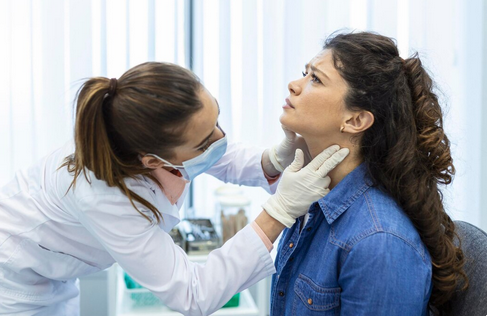

 Your brain craves predictability more than you might realize. Morning routines act like a gentle handshake with your nervous system, signaling safety and control before the day’s chaos begins. Start with something simple: five minutes of deep breathing, a cup of tea without distractions, or writing three things you’re grateful for. These micro-habits create pockets of calm that your mind can return to during stressful moments. Research shows that people with consistent morning practices report feeling 23% more centered throughout their day. The key isn’t perfection but persistence – even a two-minute routine beats sporadic hour-long sessions.
Your brain craves predictability more than you might realize. Morning routines act like a gentle handshake with your nervous system, signaling safety and control before the day’s chaos begins. Start with something simple: five minutes of deep breathing, a cup of tea without distractions, or writing three things you’re grateful for. These micro-habits create pockets of calm that your mind can return to during stressful moments. Research shows that people with consistent morning practices report feeling 23% more centered throughout their day. The key isn’t perfection but persistence – even a two-minute routine beats sporadic hour-long sessions.
 Exercise for mental health doesn’t require gym memberships or grueling workouts that feel like punishment. The goal is moving your body in ways that bring joy while releasing tension and boosting mood-regulating neurotransmitters. Dance badly to your favorite songs in your living room, take walking meetings instead of sitting in conference rooms, or try adult playground equipment at local parks. Physical movement helps process stored emotions and stress hormones that talk therapy alone sometimes can’t reach. Find activities that make you forget you’re exercising – whether that’s gardening, playing with pets, or learning juggling tricks. The best movement routine is one you want to do, not one you force yourself through.
Exercise for mental health doesn’t require gym memberships or grueling workouts that feel like punishment. The goal is moving your body in ways that bring joy while releasing tension and boosting mood-regulating neurotransmitters. Dance badly to your favorite songs in your living room, take walking meetings instead of sitting in conference rooms, or try adult playground equipment at local parks. Physical movement helps process stored emotions and stress hormones that talk therapy alone sometimes can’t reach. Find activities that make you forget you’re exercising – whether that’s gardening, playing with pets, or learning juggling tricks. The best movement routine is one you want to do, not one you force yourself through.






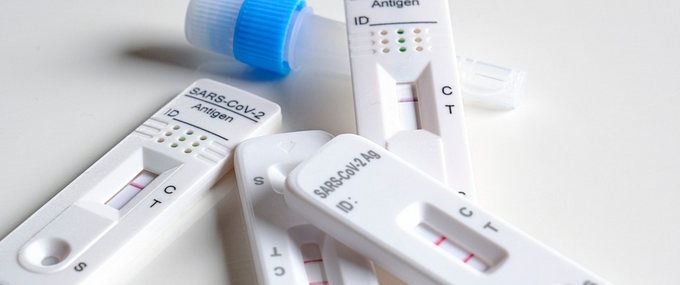
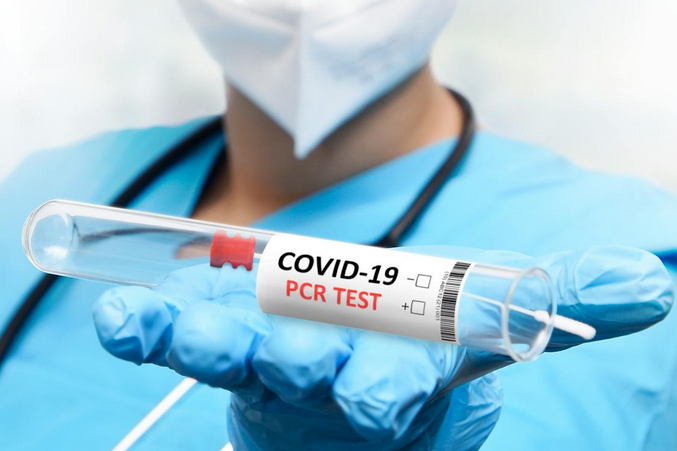
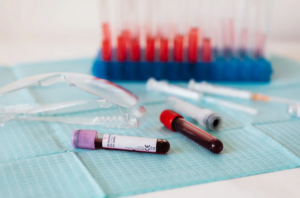 One of the most popular COVID tests available is the Antibody Test, also known as a Serological Test. This test detects antibodies in your blood that are produced by your immune system in response to an infection with SARS-CoV-2, the virus that causes COVID-19. A healthcare professional will take a sample of your blood during this test and examine it for specific antibodies. If you have been previously infected with COVID-19, these antibodies should be present in your bloodstream. The advantage of an antibody test is that it can determine if you have had COVID-19, even if you were asymptomatic or experienced mild symptoms. It can help provide valuable information about past infections and potential immunity against future diseases.
One of the most popular COVID tests available is the Antibody Test, also known as a Serological Test. This test detects antibodies in your blood that are produced by your immune system in response to an infection with SARS-CoV-2, the virus that causes COVID-19. A healthcare professional will take a sample of your blood during this test and examine it for specific antibodies. If you have been previously infected with COVID-19, these antibodies should be present in your bloodstream. The advantage of an antibody test is that it can determine if you have had COVID-19, even if you were asymptomatic or experienced mild symptoms. It can help provide valuable information about past infections and potential immunity against future diseases.



 Car exhaust fumes, those unpleasant emissions that spew out of vehicles on the road, may be more than just a hazard for our lungs – they could also play a role in hair loss. You might be thinking, “Wait, how is that even possible?” Well, let’s dig into the science behind it. When cars burn fuel, they release a cocktail of harmful chemicals into the air. These pollutants can infiltrate our environment and affect our bodies in various ways. One study found that exposure to car exhaust fumes can lead to oxidative stress in hair follicles. This oxidative stress disrupts the normal functioning of these follicles and contributes to hair loss.
Car exhaust fumes, those unpleasant emissions that spew out of vehicles on the road, may be more than just a hazard for our lungs – they could also play a role in hair loss. You might be thinking, “Wait, how is that even possible?” Well, let’s dig into the science behind it. When cars burn fuel, they release a cocktail of harmful chemicals into the air. These pollutants can infiltrate our environment and affect our bodies in various ways. One study found that exposure to car exhaust fumes can lead to oxidative stress in hair follicles. This oxidative stress disrupts the normal functioning of these follicles and contributes to hair loss.




 Greens powders are also rich in vitamins, minerals, and antioxidants that can help boost your immune system. Vitamins A, C, and E — all of which are found in most greens powder products — support the body’s natural defenses against infection and disease. Additionally, the antioxidants in greens powder may help fight off free radicals that can cause damage to healthy cells.
Greens powders are also rich in vitamins, minerals, and antioxidants that can help boost your immune system. Vitamins A, C, and E — all of which are found in most greens powder products — support the body’s natural defenses against infection and disease. Additionally, the antioxidants in greens powder may help fight off free radicals that can cause damage to healthy cells.
 Pregnancy is one of the most common causes of stretch marks. As you carry your baby in utero, your skin stretches and pulls to accommodate its growth. This can cause stretch marks, particularly around your abdomen, as it expands. Unfortunately, pregnancy-related stretch marks are tough to prevent, but there are steps you can take to reduce their visibility and ensure their skin remains moisturized and healthy. Many women find that using natural oils and lotions to massage their skin helps keep it supple and reduce the appearance of existing stretch marks. If you’re pregnant and want to do everything you can to keep your skin as healthy as possible, speak with your doctor about which products are safe for use during pregnancy.
Pregnancy is one of the most common causes of stretch marks. As you carry your baby in utero, your skin stretches and pulls to accommodate its growth. This can cause stretch marks, particularly around your abdomen, as it expands. Unfortunately, pregnancy-related stretch marks are tough to prevent, but there are steps you can take to reduce their visibility and ensure their skin remains moisturized and healthy. Many women find that using natural oils and lotions to massage their skin helps keep it supple and reduce the appearance of existing stretch marks. If you’re pregnant and want to do everything you can to keep your skin as healthy as possible, speak with your doctor about which products are safe for use during pregnancy. Last but not least, genetics can also play a role in developing stretch marks. If someone in your family has stretch marks, you may likely develop them too. This doesn’t mean that you are doomed to have them, but it’s essential to be aware of the possibility. If you know that your family has a history of stretch marks and you want to reduce your chances of developing them, make sure you are taking steps to keep your skin healthy and moisturized and avoiding rapid changes in weight or sudden hormonal changes imbalances. Some people are lucky not to inherit their family’s stretch marks, but it’s important to be aware of the factors at play so that you can do all you can to prevent them.
Last but not least, genetics can also play a role in developing stretch marks. If someone in your family has stretch marks, you may likely develop them too. This doesn’t mean that you are doomed to have them, but it’s essential to be aware of the possibility. If you know that your family has a history of stretch marks and you want to reduce your chances of developing them, make sure you are taking steps to keep your skin healthy and moisturized and avoiding rapid changes in weight or sudden hormonal changes imbalances. Some people are lucky not to inherit their family’s stretch marks, but it’s important to be aware of the factors at play so that you can do all you can to prevent them.





 Another way to promote mental health for students who have experienced trauma is to provide opportunities for positive social interactions. This can include creating clubs and organizations, organizing community events, and providing opportunities for students to engage in positive peer relationships. Positive social interactions can help students feel connected to others and promote positive mental health. Also, you can teach coping and stress-management skills. Coping skills can help students deal with difficult emotions and stressful situations. Stress-management skills can help students reduce stress and improve their overall well-being.
Another way to promote mental health for students who have experienced trauma is to provide opportunities for positive social interactions. This can include creating clubs and organizations, organizing community events, and providing opportunities for students to engage in positive peer relationships. Positive social interactions can help students feel connected to others and promote positive mental health. Also, you can teach coping and stress-management skills. Coping skills can help students deal with difficult emotions and stressful situations. Stress-management skills can help students reduce stress and improve their overall well-being. One final way to promote mental health for students who have experienced trauma is to raise awareness about mental health. This can be done through education and training programs, community outreach, and public awareness campaigns. Raising awareness about mental health can help reduce mental illness stigma and promote healing for students who have experienced trauma. As you can see, there are many ways to promote mental health for students who have experienced trauma. Creating a safe and supportive environment for these students to thrive is essential. Providing counseling and support services, creating safe and supportive environments, providing opportunities for positive social interactions, teaching coping and stress-management skills, and raising awareness about mental health can help promote mental health for students.…
One final way to promote mental health for students who have experienced trauma is to raise awareness about mental health. This can be done through education and training programs, community outreach, and public awareness campaigns. Raising awareness about mental health can help reduce mental illness stigma and promote healing for students who have experienced trauma. As you can see, there are many ways to promote mental health for students who have experienced trauma. Creating a safe and supportive environment for these students to thrive is essential. Providing counseling and support services, creating safe and supportive environments, providing opportunities for positive social interactions, teaching coping and stress-management skills, and raising awareness about mental health can help promote mental health for students.…
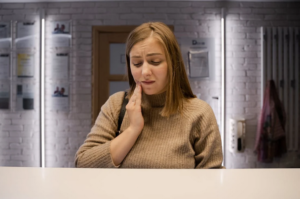 Gingivitis is a common disease that affects the gums. It is usually caused by skimpy oral hygiene, which allows plaque and bacteria to develop on the teeth and gums. This can lead to inflammation of the gums, which can be painful.
Gingivitis is a common disease that affects the gums. It is usually caused by skimpy oral hygiene, which allows plaque and bacteria to develop on the teeth and gums. This can lead to inflammation of the gums, which can be painful.

 One of the most important things you can do after a loved one dies is to allow yourself time to mourn. This means allowing yourself to feel the pain, sadness, and grief of losing someone you love. It is also essential to understand that there is no right or wrong way to mourn. Everyone grieves in their own way and at their own pace. So, do not compare your grief to anyone else’s. You may find yourself feeling better one day and then feeling worse the next. This is normal. Just know that giving yourself time to grieve is okay and that eventually, the pain will start to lessen.
One of the most important things you can do after a loved one dies is to allow yourself time to mourn. This means allowing yourself to feel the pain, sadness, and grief of losing someone you love. It is also essential to understand that there is no right or wrong way to mourn. Everyone grieves in their own way and at their own pace. So, do not compare your grief to anyone else’s. You may find yourself feeling better one day and then feeling worse the next. This is normal. Just know that giving yourself time to grieve is okay and that eventually, the pain will start to lessen. Bottling up your emotions can be harmful to your mental health. If you find yourself struggling to cope, consider talking to a therapist. A therapist can help you to process your emotions and work through the pain. They can also provide you with tools and resources to help you in your healing process. If you do not feel like talking to a therapist, consider talking to a friend or family member who will understand and be there for you. Death is never easy. However, by following these tips, you can start to cope with the pain and eventually heal. Just remember to give yourself time, be wary of thoughts derail your healing process, take care of your well-being, and talk to a therapist if you need to. In addition, talking to someone about your feelings can help you to feel better and start to heal. So, do not be afraid to reach out for help when you are struggling. These things will help you to move forward after your loved one dies.…
Bottling up your emotions can be harmful to your mental health. If you find yourself struggling to cope, consider talking to a therapist. A therapist can help you to process your emotions and work through the pain. They can also provide you with tools and resources to help you in your healing process. If you do not feel like talking to a therapist, consider talking to a friend or family member who will understand and be there for you. Death is never easy. However, by following these tips, you can start to cope with the pain and eventually heal. Just remember to give yourself time, be wary of thoughts derail your healing process, take care of your well-being, and talk to a therapist if you need to. In addition, talking to someone about your feelings can help you to feel better and start to heal. So, do not be afraid to reach out for help when you are struggling. These things will help you to move forward after your loved one dies.…
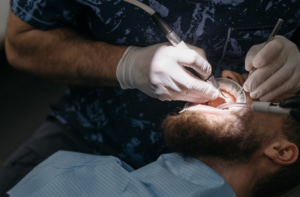 One of the most important things you can do to make sure you’re getting the most out of your Invisalign treatment is to keep track of your schedule. This means knowing when each aligner is supposed to be worn and how long. It is also essential to know when you are supposed to switch to a new aligner. If you are not sure about your schedule, ask your dentist or orthodontist. They will be able to help you create a schedule that works best for you.
One of the most important things you can do to make sure you’re getting the most out of your Invisalign treatment is to keep track of your schedule. This means knowing when each aligner is supposed to be worn and how long. It is also essential to know when you are supposed to switch to a new aligner. If you are not sure about your schedule, ask your dentist or orthodontist. They will be able to help you create a schedule that works best for you.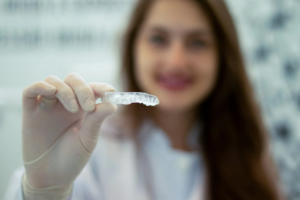 Finally, one of the best ways to get the most out of your Invisalign
Finally, one of the best ways to get the most out of your Invisalign 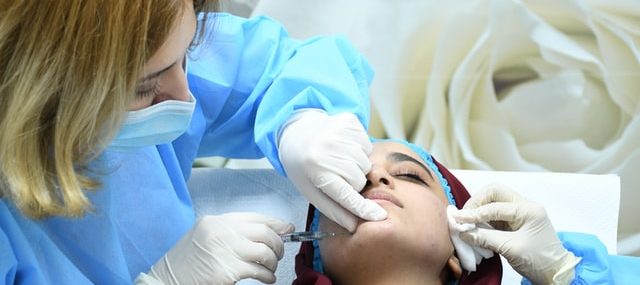
 The best way to start your search for the perfect aesthetician is by looking at online reviews. It will give you a good idea of what other people thought about their experience with that doctor. However, be aware that some clinics might have fake reviews on their website or social media pages. So, it’s essential to do your research and read reviews from various sources.
The best way to start your search for the perfect aesthetician is by looking at online reviews. It will give you a good idea of what other people thought about their experience with that doctor. However, be aware that some clinics might have fake reviews on their website or social media pages. So, it’s essential to do your research and read reviews from various sources.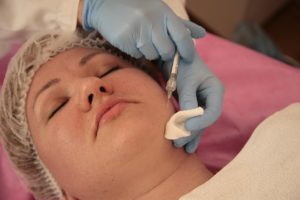 Not all medical aestheticians will use non-invasive methodologies. However, it would help if you avoided those who do not because they can cause skin damage and other issues that might be difficult or impossible to fix later on. It would help if you only went for a professional doctor who uses non-invasive methodologies such as PRP therapy which has been proven to work by various studies. Avenue+Co Medical Clinic offers a wide range of medical aesthetic services that can cater to all your needs! So, what are you waiting for? You can book an appointment with us today, and let’s get started on fixing your skin problems.…
Not all medical aestheticians will use non-invasive methodologies. However, it would help if you avoided those who do not because they can cause skin damage and other issues that might be difficult or impossible to fix later on. It would help if you only went for a professional doctor who uses non-invasive methodologies such as PRP therapy which has been proven to work by various studies. Avenue+Co Medical Clinic offers a wide range of medical aesthetic services that can cater to all your needs! So, what are you waiting for? You can book an appointment with us today, and let’s get started on fixing your skin problems.…
 The most common benefit of weight loss supplements is that they boost metabolism, which helps the body burn fat faster. This increased metabolic rate also encourages one to eat less and experience fewer cravings for unhealthy foods like fast food or junk food.
The most common benefit of weight loss supplements is that they boost metabolism, which helps the body burn fat faster. This increased metabolic rate also encourages one to eat less and experience fewer cravings for unhealthy foods like fast food or junk food. It’s also important to note that weight loss supplements can help you lose more than just unwanted body fat. A good supplement will boost your energy levels and give you the mental focus needed to exercise regularly, which is essential for improving one’s health and losing weight quickly.
It’s also important to note that weight loss supplements can help you lose more than just unwanted body fat. A good supplement will boost your energy levels and give you the mental focus needed to exercise regularly, which is essential for improving one’s health and losing weight quickly.
 Physiotherapy can reduce chronic pain, even eliminating them depending on how well your body responds to the treatment. It is not uncommon for patients to feel the effects of physiotherapy within just a few weeks after starting their sessions.
Physiotherapy can reduce chronic pain, even eliminating them depending on how well your body responds to the treatment. It is not uncommon for patients to feel the effects of physiotherapy within just a few weeks after starting their sessions.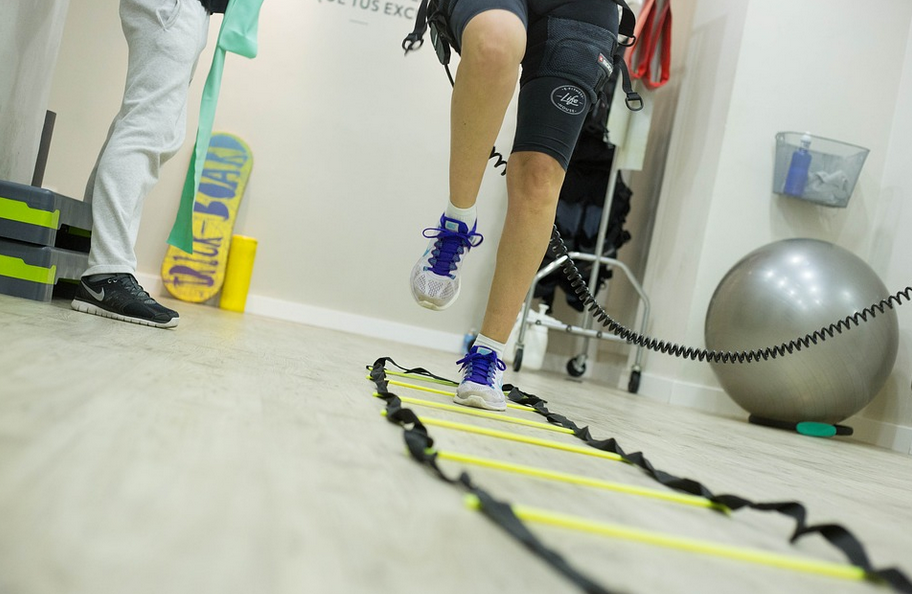 We humans will lose strength in our joints, bones, and ligaments with age because of the degenerative process. This will make you lose balance, which is why the physiotherapist can help by using tools like an exercise ball to improve your equilibrium and coordination while also strengthening your core muscles through yoga or pilates-like movements to help you avoid harmful falls that can prove to be fatal for senior citizens.
We humans will lose strength in our joints, bones, and ligaments with age because of the degenerative process. This will make you lose balance, which is why the physiotherapist can help by using tools like an exercise ball to improve your equilibrium and coordination while also strengthening your core muscles through yoga or pilates-like movements to help you avoid harmful falls that can prove to be fatal for senior citizens.